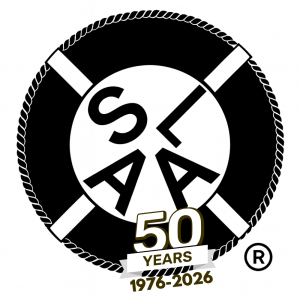A member of S.L.A.A., who attends only (special interest meetings) which have their own format has recently been organizing events. He organized a social event recently to a theatre event in our city for members of S.L.A.A. Another event has been a lecture by a therapist followed by dinner. He hasn’t had this event sanctioned at Intergroup, but is operating it on his own. He promoted the event during the announcements section of various S.L.A.A. meetings for some weeks, referring to it as an S.L.A.A. (special interest group) fundraiser and sold tickets to members of those groups after the meeting. When questioned by one group as to why he was doing this on his own and whether he ought to seek permission from the Intergroup, he replied that he could do whatever he liked and he didn’t care what the Intergroup thought.
This member is acting as a bit of a renegade in the Fellowship. A committee was set up by the Intergroup about 6 months ago to deal with these (special interest meetings) and literature. Many members have left that committee stating that they could not work with him. He has recently told members of that committee to start asking S.L.A.A. groups for money for rent and travel costs to these committee meetings (This Intergroup covers a large geographical area). He is also announcing all sorts of non-S.L.A.A. related or sanctioned social events that are being organized by his committee without Intergroup permission or knowledge at meetings. These are my questions –
- Should he be promoting his event at meetings without that group or Intergroup’s permission to do so?
- Shouldn’t he be calling it an S.L.A.A. fundraiser as opposed to an S.L.A.A. (special interest group) fundraiser?
- What Traditions could be cited around this issue in order to gain clarity on the best way to go forward and help to guide this person in his action?
- As this committee was set up as an Intergroup committee, does the Intergroup have the right to disown this Committee if he refuses to act as a trusted servant of the Intergroup?
- Can an Intergroup distribute a flyer to S.L.A.A. groups outlining concerns about a member’s activities, obviously keeping it anonymous, and offering guidelines as to what each group can do if they are asked for money or if non-S.L.A.A. events are consistently being announced at their meetings, etc?
What are your suggestions?
These questions combine a number of thorny issues, but since we’ve seen similar situations, it’s clear that this is not an isolated incident.
Should he be promoting his event at meetings without that group or Intergroup’s permission to do so? – Just as our Tradition Study Group does not govern nor police other groups, it’s my belief that the Intergroup’s position is not to govern. That’s not how our program works. We are led by our Higher Power’s will that is made clear through our group conscience. I see Tradition 4 at work here. (Each group should be autonomous except in matters affecting other groups or S.L.A.A. as a whole.) This appears to be a specific issue that is present in one group. I would suggest that the Group Conscience of that group should guide its actions, being mindful and centered on their Higher Power.
Shouldn’t he be calling it an S.L.A.A. fundraiser as opposed to an S.L.A.A. (special interest group) fundraiser? – This seems to be a Tradition 7 issue. (Every S.L.A.A. group ought to be fully self-supporting, declining outside contributions.) In my mind what he calls it is not as important as the fact that a member is soliciting outside contributions. This violates the spirit of Tradition 7.
As this committee was set up as an Intergroup committee, does the Intergroup have the right to disown this committee if he refuses to act as a trusted servant of the Intergroup? – Again, we are not governed b any particular group. We are guided by our Higher Power as expressed through our Group Conscience. The closer all members can stay in touch with their Higher Power, the clearer the message and guidance will be.
There are a couple of other questions but I think they tie very closely with what I’ve said already.
This is a difficult set of questions to answer due to their very nature. I am glad that we do not provide for a group conscience on the questions because this one could have many possible scenarios and good discussion is a healthy thing.
One important point to remember regarding this question is that it is loaded with Tradition 4 issues. The Intergroup in this case used its autonomy to establish these special meetings, which in turn are autonomous of each other. Each Intergroup or group has the right to conduct their business and meetings in any way which they wish, provided that they do not affect S.L.A.A. as whole or other meetings. As has been previously expressed in other questions, each group can decide whether or not to announce any events. The Intergroup does not have to sanction an event. In the area in which I live, the Intergroup does not sponsor events as a general rule, but does give support to them by encouraging members to attend those events.
We are fully self-supporting, Tradition 7, therefore these groups could very well promote fundraising activities among the membership which would certainly be in keeping with this Tradition, since they are not going outside the Fellowship to raise funds. Many retreat committees and recovery day committees have used this type of fundraising to help defray the costs of the event, thus making them more affordable for those who are attending, or to provide some expense money for a keynote speaker for the event or to provide scholarships to the event. It is not clear from the question as to how these funds are being used. If they are being used to help a struggling Intergroup, then it would seem to be in keeping with the Tradition. However, if the funds are being used to line the pockets of the one doing the fundraising, then this could be a violation of Traditions 6 (money, property or prestige) and 7. The use of the funds could determine the title that is given to the fundraiser.
Because the committee that was set up to help guide these meetings was set up by the Intergroup as authorized by Tradition 9, it can also be closed by the Intergroup – Traditions 4 and 9. I would think that it would possibly be wiser for the Intergroup to ask the member in question to step down from the committee since he is generating controversy. This type of controversy has the potential to become public; therefore it could become a Tradition 10 issue.
To distribute a flyer to the various groups could be a breach of the unity spoken of in Tradition 1.
As to how controversial this issue might be, we need to take into consideration whether it is a small vocal minority who are questioning what is happening or whether it might be a majority of the membership in the region which is questioning the events taking place. This could become a Tradition 12 issue dealing with principles before personalities. Our primary purpose is to carry the message, Tradition 5, and this can be done using whatever is expedient for the Intergroup or group, Tradition 4).
The inquirer might also refer to the previous, similar questions and responses, one captioned as the Announcements Question and the other as the Outside Literature Question. These are three similar issues which face our Fellowship as a whole.


